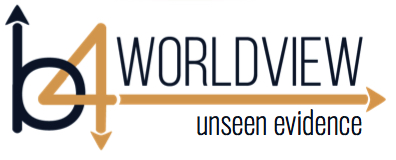
Key Thought for this session:
“Without a compass, the journey is futile.”
I think that if we are being honest with ourselves, then we will realize that we all struggle with idols in our life, such as fame, luxury, comfort, status symbols, and material success. But ultimately, we find that pursuing idols does not deliver the abundance and virtue we want in the “big picture” of our life. It turns out to be very helpful in our quest for “True North” to be able to identify these idols that tend to take us off course.
Moving on, the third principle of finding “True North” involves the originator of an object. What is revealed by the originator of an object can only be true if the originator is trustworthy.
As we mentioned earlier, you basically have only two choices regarding how you determine whether or not something is true. One is relying on knowledge that comes from some observations of an object and the second one is relying on knowledge that comes from what the originator says about the object. The observer will determine if knowledge is true by gathering facts about the object. This lends itself to our first principle that says an observer can follow good logic in thinking about an object, but not conclude what is true about the object. Observers are subject to all of the biases and perceptual flaws discussed in earlier sessions.
The originator knows what is true about the object. After all, the author is the authority. However, there is a problem we still need to resolve. If you only have eido knowledge of the originator and do not have gnosis knowledge of the originator, you will not be able to determine his/her credibility without some risk. Therefore, if you wish to remove as much risk as possible, you need to establish the trustworthiness of the originator. We discussed what trustworthy means in Session 4. Someone is trustworthy when they have a selfless character, competence, and the ability to deliver what they promise.
This third principle basically could be pictured like this. If you wanted to know about a glitch in your mobile phone, you could study it, compare it to others’ observations, and then try to reason to the solution of your problem—taking the risk that what appears to be a solution really won’t cause or hide other problems. Or, you could ask the originator by either taking it into the phone store or calling the company. The bottom line is you either rely on inferences from observations of an object, or you rely on the trustworthiness of the originator of the object. This leads us to principle four.
The fourth principle of inferring true north is that absolute truth can be found in the testimonies of the lives of others who you already trust. This principle does not say that we should necessarily value all testimonies, but it is suggesting that the testimonies of those who have already earned our trust, could be helpful to us. Having a rational understanding of something as true is important, but we should always feel some caution that we can be misguided by our own biases. We know this from earlier discussions about our flaws and limits to our rational thinking. So if someone we already TRUST tells us that something is true, then that testimony can actually help provide us with a form of the gnosis knowledge we need. This is especially important when tied in with principle three. Sometimes we can be too quick to trust others, and this tendency can cause us to prematurely place trust in an object’s originator. The testimony of a trusted friend can sometimes help us not make that mistake.
We have mentioned earlier that one mistake generally made in trying to find truth is to think that if you get enough eido evidence, then you do not have to rely on faith, or evidence of gnosis knowledge. In many ways seeking eido knowledge can be helpful because you gain more perspective, but the quest for eido knowledge can be a pride thing, a form of arrogance to trust yourself. Lots of eido creates an allusion of control. You feel you have more certainty and do not have to rely on anything which comes from outside of what you can touch, see, hear or smell. Certainly, none of us expects to be an expert in everything. A juror does not need to become an expert in order to judge what is true in a court case. Jurors must determine the trustworthiness of the witnesses and then depend on the testimonies of experts and eye witnesses to discover what is true about a case. This would be a helpful model for you. Aggressively seek eido knowledge, but respect its limits. Seek the testimonies or gnosis knowledge from people who demonstrate unobservable evidence for true north.
Let’s revisit the Column A – Column B question about which core assumption is true regarding satisfying the soul. What would someone who has notably lived an abundant and virtuous life say about which column would be most helpful? The Column B approach to satisfying the needs of our soul has been studied and written about for centuries by philosophers, theologians, economists, and psychologists. While there may be some different narratives on this, many reliable experts throughout the ages have told us the Column B approach works well because ultimately our soul satisfaction is not dependent on what we do or on what other flawed humans do to us or for us.
Testimonies of many real people like national heroes, successful athletes, and historic icons would agree with Column B assumptions. Many people for thousands of years have confessed that the abundant and virtuous life is not what they could accomplish through their own efforts, but by trusting a power greater than themselves who willfully provided for their soul’s needs.
Let me conclude this principle by asking you this question.